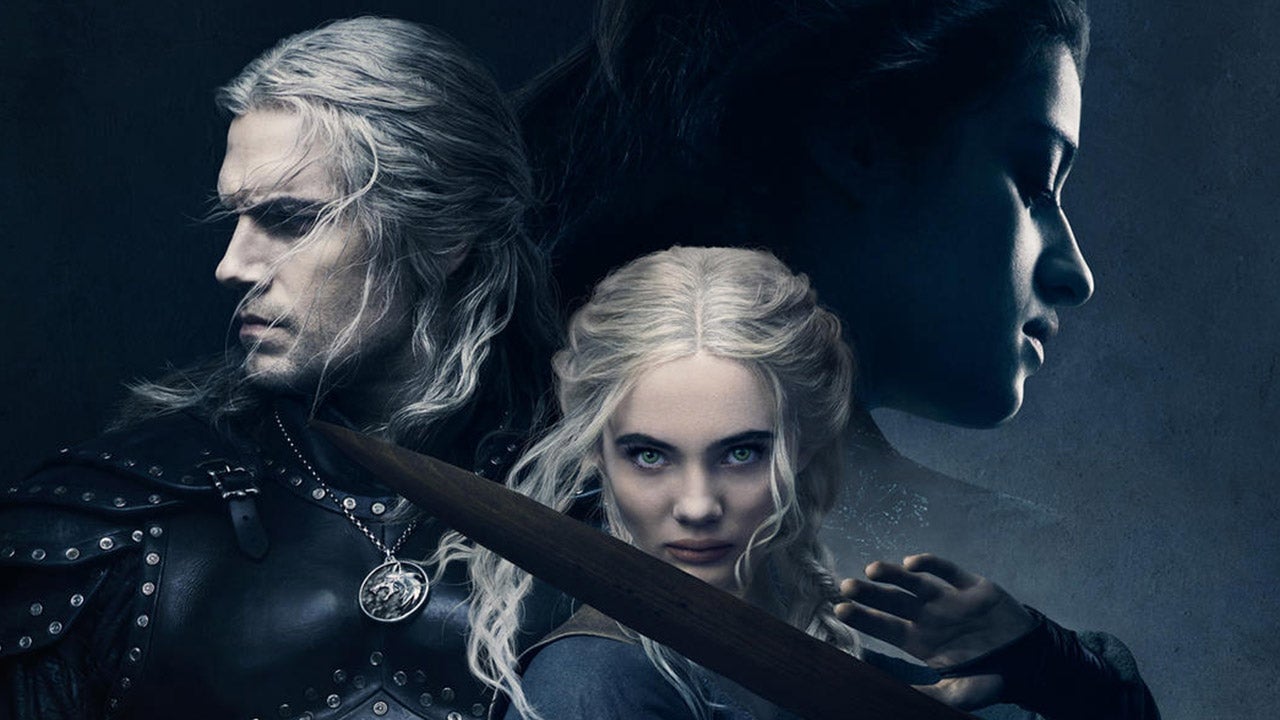“Give me what you have, but do not yet know that you have.” So reads the Law of Surprise, an ancient tradition for repaying debts in the Continent, the war-torn, monster-infested world of Netflix’s original series The Witcher. In many ways, this simple phrase describes the show’s second season, which released in its entirety on December 17 following multiple delays related to the ongoing COVID-19 pandemic. We asked for what we had liked about Season 1 – a gruff witcher, a powerful sorceress, a lost princess, battles and politics and catchy bardic tunes – and were given not only that but so much more – the story of a family coming together amidst a world that seems determined to keep them apart.
You can skip the Hallmark Channel this holiday – the “heart-warming story of a found family learning to love and trust each other and face the odds together” hit of the season is already here, and it’s called The Witcher Season 2.
Adapted from Polish author Andrzej Sapkowski’s series of the same name, The Witcher stars Geralt of Rivia (Henry Cavill), the titular magically – and alchemically-modified monster hunter who spent most of the first season insisting that he was better off alone, didn’t feel emotions, and had no desire to get close to anyone. He quickly finds all three assertions proven wrong as he becomes the guardian of Princess Cirilla (Freya Allan) and quickly begins to care for her as his own daughter. As multiple powerful factions seek to capture Ciri for their own ends, the pair come to learn that she possesses a great destiny tied to the future of the very Continent itself.

And then, because Geralt and destiny have never been the best of friends, he instead decides to train and protect her, allowing her to seek out her own future rather than being controlled by those in power. Along the way, he gathers allies to help him in his cause, including the sorceresses Yennefer of Vengerberg (Anya Chalotra) and Triss Merigold (Anna Shaffer), his fellow witchers led by the venerable Vesemir (Kim Bodnia), and the oh-so-talented (and ever-so-humble) bard Jaskier (Joey Batey). Bound together by their love for Ciri, Geralt and his ragtag family will face down ancient demons, ambitious emperors, scheming sorcerers, and bizarre never-before-seen monsters to keep their girl safe.
Season 1 of The Witcher, which debuted in late 2019, was….if we’re being completely honest, a bit of a mess. While it certainly had its high points (Cavill, an avid fan of the series, has delivered a faithful and consistently watchable interpretation of Geralt since the very first episode), it was bogged down by confusing non-linear timelines, an excess of sex scenes, and filler plots attempting to stitch together adaptations of Sapkowski’s earliest short stories, many of which were written before the author had really fleshed out any of his non-Geralt supporting cast. It was trying to be Game of Thrones and a faithful adaptation of some honestly not-great early writing and both separate itself from and endear itself to fans of CD Projekt RED’s award-winning game adaptations of the series all at once, and it didn’t quite succeed at any of them.
Luckily, Season 2 can be best summed up in a line Geralt says to Ciri early in the show’s first episode. When she asks the witcher “So, am I your destiny?” he responds with “No. You are so much more.” And so, too, is this new season of The Witcher so much more than what came before.

Gone are the meandering timelines and pointless digressions. This is eight hours of tightly focused television that tells a cohesive, coherent and almost totally linear story. Never have I seen a piece of media take so much negative feedback and constructive criticism and genuinely use it to make something new and better. The decision to center the relationship between Geralt and Ciri grounds the story, while still allowing it to retain elements of both a high fantasy epic and a political thriller. Now we care about those scenes of wizards spying or kings plotting with their advisors, because that’s Geralt’s daughter, that’s our Ciri that they’re treating like a pawn, and how DARE they?
In an exclusive Q&A with a few lucky viewers (including this very fortunate author) prior to the season’s debut, star Henry Cavill expressed that he wanted to show the world a more emotional and fundamentally more human Geralt in Season 2, and this was accomplished with aplomb. Allowing a character like Geralt to step out of the tired mold of “isolated, grim-faced, mostly-silent and oh-so-manly action hero” was a daring move for the show to make, and I applaud them for making it. Season 1 Geralt wasn’t bad – again, Cavill is a fan, and he did the best he could with what he was given – but Season 2 Geralt smiles, willingly calls people “friend,” admits weakness, and never lets Ciri doubt for a moment how deeply he cares for her. He was allowed to go from “Witchers don’t feel” to “Witchers feel so much, all the time, and so they have to put on a strong face for the world simply to survive” and the pivot was a desperately needed one.
Every main character’s arc felt smoother, more personal, and more relatable than their Season 1 counterparts. Yennefer, arguably the character who suffered most from the first season’s abundance of random filler plots, is forced to choose between her growing motherly love for Ciri and the threat of a life without the magic she has come to depend on. Jaskier is elevated from comic relief to a confident, charismatic key figure in an underground rebellion – all while still getting to belt out some extremely catchy new songs. The antagonistic factions of Nilfgaard and the elves, as represented by their leaders Fringilla (Mimi Ndweni), Cahir (Eamon Farren), Filavandrel (Tom Canton), and Francesca (Mecia Simson), are humanized via a closer look at their internal struggles and the understanding that they, too, are simply trying to survive on a Continent hostile to nearly all its inhabitants. Even Vesemir, who could easily have been relegated to a static character in the traditional “wise old mentor” role, is given a compelling arc as he searches for a method to create new witchers and grapples with whether the Continent truly needs witchers anymore.

But the heart of the season is Ciri. Freya Allan’s performance as this lost girl desperately seeking a family, stubbornly carving out a place in the world, and ultimately facing down her own destiny is absolutely brilliant and keeps viewers clicking the “watch next episode” button over and over again. By letting Season 2 be Ciri’s story, perhaps even more than it is Geralt’s, the show’s writers and directors were truly able to create something unique and new. Watching Ciri’s growth, and the growth of the found family she builds around her, is ultimately what makes watching The Witcher Season 2 such a satisfying experience.
Overall, The Witcher Season 2 is a highly enjoyable, gripping, emotional experience that is recommended for absolutely anyone. It is one of Netflix’s strongest offerings of late, and will leave you excited for a Season 3 that is unfortunately likely years away – but willing to wait for it, because now you know exactly how good this show can be. Do not let an unfamiliarity with Geralt and his world deter you – you do not need to have read the books or played the games to enjoy the Netflix show, although watching Season 1 first is of course recommended. If you have read the books, I urge you to be open-minded and flexible when it comes to the changes they have made from canon – unlike Season 1, any changes do genuinely feel like they are to the benefit of overall storytelling.
Have you watched The Witcher Season 2? Did you binge the entire season in a single day, like I did? Which is your favorite of Jaskier’s new songs – and why is it Burn, Butcher, Burn? Please comment and share your thoughts below!

Both season of “The Witcher” are currently available to watch on Netflix. An animated movie, Nightmare of the Wolf, is also available. A prequel, Blood Origins, is currently expected to debut in 2022.

